The Science of Rewilding: a reading list curated by Paul Jepson
Guest
It's always a joy and an utter pleasure when community members from outside the team contribute with their expertise to one of our reading lists. Here's local author Paul Jepson, author of Rewilding: The Radical New Science of Ecological Recovery with a lspecially curated list focusing on the Scottish context;
Rewilding marks a shift from merely protecting nature to actively restoring it. This transition is driven by exciting developments in ecological science—a discipline that emerged in the early 20th century but only recently gained the technology tools to fully grasp the complexity of natural systems.
Over the past 30 years, advances in computational power, ecosystem restoration, and wildlife tracking have revolutionised our understandings. Coupled with a renewed spirit of conservation innovation, prompted by the biodiversity and climate crises, these advancements have fostered a radical new approach to ecological recovery embodied in the term ‘Rewilding’
Scotland stands at the forefront of implementing rewilding. Campaigners are calling on the government to designate Scotland a 'Rewilding Nation,' while policymakers are considering and Ecosystem Recovery Code to create nature-based credits akin to carbon credits.
In this reading list, I’ve compiled books that explore the science and practical implications of rewilding that are particularly relevant to Scotland.
Wilding by Isabella Tree
If you’re new to rewilding, Wilding is the perfect place to start. Isabella Tree tells the compelling story of how she and her husband transformed their conventional English farm into a thriving wood pasture. Generating income through eco-tourism and premium meat products, their experiment demonstrated how traditional agriculture can transition to a nature-led farm business and estate enterprise model.
Tree introduces pioneering thinkers who reshaped conservation philosophy, shares inspiring stories of nature’s recovery, and provides an insightful chapter on the soil science and rewilding. Her candid reflections on navigating bureaucratic and cultural barriers highlight the urgent need to modernise agricultural policy. More than just a personal journey, Wilding is a call for systemic change—offering a blueprint for how Scotland, with its vast rural estates and farming communities, could embrace rewilding as a viable economic and ecological strategy.
Rebirding by Benedict Macdonald
Benedict Macdonald’s Rebirdingoffers a sweeping introduction to rewilding, combining ecological history, critique, and bold visions for the future. He begins by charting Britain’s natural history since the last Ice Age, arguing that for millennia, human activity has systematically degraded nature to an embarrassing extent.
Macdonald examines successful rewilding projects worldwide, both to showcase what is possible and to challenge the notion that Britain has been a good steward of its natural heritage. In the final section, he critically appraises Britain’s landscapes, including national parks, exposing the deep-rooted failings of land management and the shortsightedness of our current economic approach to the countryside. However, he goes beyond critique, offering radical radical rewilding visions different British landscapes, including one for Scottish estates - practical versions of which are being pioneered on a growing number of Scottish Estates..
The Missing Lynx by Ross Barnett
During the Pleistocene, Britain teemed with megafauna like Sabretooth cats, Cave hyenas, and bears. Around 12,000 years ago, many of these species vanished—but why?
In The Missing Lynx, Scottish writer Ross Barnett examines the evidence and argues that human hunting, rather than climate change, drove these extinctions. This insight reshapes our understanding of megafauna and strengthens the case for rewilding surviving species—even in their domesticated forms.
Structured like a modern bestiary, the book explores Britain’s lost megafauna species by species, drawing on fossil records and historical accounts. Barnett blends scientific analysis with rich storytelling, making this both a fascinating read on extinction and an essential perspective on the long-term vision of rewilding.
The Lynx and Us by David Hertherington
An active discussion is underway about whether to reintroduce lynx to Scotland. In this beautifully illustrated book, David Hetherington—an ecologist with the Cairngorms National Park—presents an engaging and accessible account of lynx ecology, recovery, and reintroduction efforts.
He explores how countries across Europe have enacted pro-lynx policies, from stricter protection to active reintroduction, and how, over the last three decades, lynx populations on the continent have recovered from a historic low to an estimated 7,000-8000 in EU member states.
This book presents one aspect of the science behind why Scotland’s leading rewilding charity, Scotland: The Big Picture, is asking the pressing question: Why not Scotland? It forces us to confront why Scotland and Britain lag decades behind their European neighbours in wildlife recovery. What is it about our society or psyche that makes us so hesitant to share our landscapes with larger animals??
Wild Fell by Lee Schofield
Wild Fell tells the story of another rewilding project: the transformation of an RSPB-acquired hill sheep farm in the Lake District. Though the setting is England, the themes resonate across Scotland.
Schofield writes candidly about the isolation faced by those challenging entrenched farming methods and introducing holistic ecological principles. As a botanist working within a bird conservation charity, he offers an urgent account of Britain’s wildflowers—many now reduced to isolated refuges due to overgrazing.
Seeking a vision for what Scotland’s landscapes could become, Schofield travels to southwest Norway, a region with a similar climate that has undergone spontaneous rewilding following human emigration. His evocative descriptions not only provide a glimpse into what Scotland’s future could be but also serve as a stark benchmark, highlighting how degraded Scotland’s ecosystems have become. By contrasting these landscapes, Schofield challenges us to reimagine the potential for nature-led land management and ecological recovery in Scotland.
Many rewilding books focus on megafauna; Wild Fell is essential reading for plant lovers and those interested in rural regeneration.
The Lost Rainforests of Britain by Guy Shrubsole
Rewilding has led to a startling realisation: many of Britain’s ancient woodlands are remnants of lost temperate rainforests. These fern and moss-draped forests once stretched along Scotland’s western regions, thriving in our ‘dreich’ climate of cold, mist and rain!
In The Lost Rainforests of Britain, Guy Shrubsole shares his own ‘awakening’—from discovering fragments of these forests in Devon during lockdown to mapping their remaining pockets across Britain. He explores their unique ecology, the myths and folklore surrounding them, and the projects working to restore them.
More than an ecological detective story, Shrubsole’s book carries a sharp political edge. He exposes how deforestation, land use policies, and industrial interests have marginalised these extraordinary ecosystems. The Lost Rainforests of Britain reminds us that rewilding is as much about challenging power structures as it is about ecological restoration.
Entangled Life by Merlin Sheldrake
Rewilding expands scientific horizons, deepening our appreciation of life’s extraordinary complexity and interconnectedness. Few books capture this as beautifully as Entangled Life, Merlin Sheldrake’s exploration of fungi and their role in shaping ecosystems.
Sheldrake reveals how fungi underpin much of the natural world, from underground networks that sustain forests to symbiotic relationships. His masterful storytelling makes complex scientific advances accessible, illuminating the hidden processes that drive ecological resilience, and challenging conventional ideas of individuality at all levels.
In the context of rewilding, Entangled Lifepushes the conversation beyond landscapes and species to the unseen fungal networks that enable ecosystems to function. It challenges us to view nature not as a collection of habitats but as an interconnected web of life.
An Immense World by Ed Yong
For those seeking a radical perspective—one that reshapes not just rewilding but poses deep questions about our entire relationship with other animals—An Immense World is essential reading.
Ed Yong explores the ‘hardware’ animals have evolved to sense their environments, examining vision, sound, smell, magnetoreception, and more. Across the vast diversity of life, different combinations of these senses have created multiple—and sometimes bizarre—ways of perceiving and navigating the world. Yong’s accounts awaken us to the reality that the biota is an amalgamation of unique life-worlds, some of which intersect while others remain incomprehensible across species.
Yong challenges human exceptionalism, urging us to consider the sensory realities of other beings. His book is part of a broader movement that revives philosophical ideas—such as the German concept of Umwelt—and applies them to cutting-edge research. Advances in technology, from bio-loggers to AI-driven sensors, are now revealing new insights into how animals experience their environments.
For rewilding, An Immense World also poses a deeper question: What is the true goal of species recovery? Is it simply to restore populations? To reintroduce lost ecosystem engineers? Or is it to allow animals to reclaim and reinhabit the life-worlds they evolved within—granting them agency in shaping future ecosystems in Scotland and beyond?
A revelatory, mind-expanding read, this book challenges us to rethink what restoring nature truly means.
Linked Books
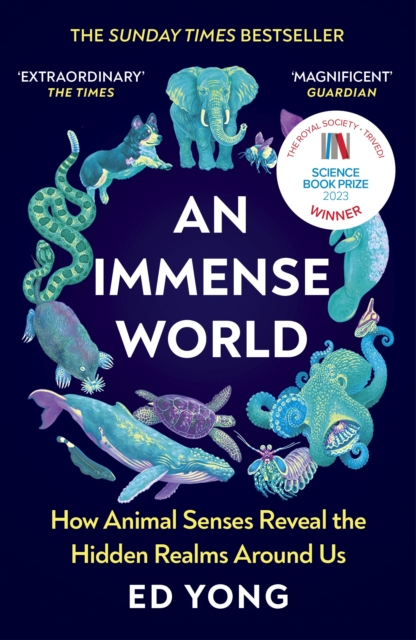
- title
- An Immense World : How Animal Senses Reveal the Hidden Realms Around Us (THE SUNDAY TIMES BESTSELLER)
- author
- Yong, Ed
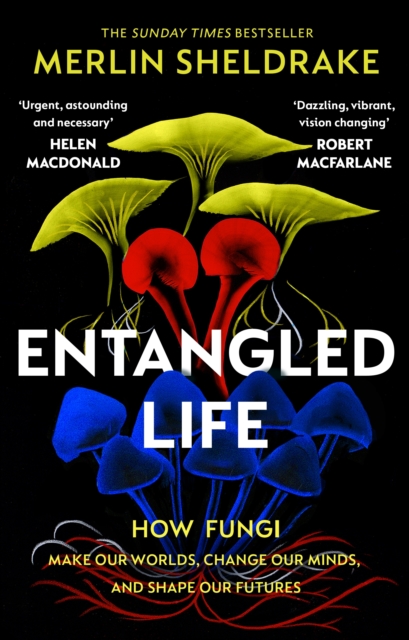
- title
- Entangled Life : How Fungi Make Our Worlds, Change Our Minds and Shape Our Futures
- author
- Sheldrake, Merlin
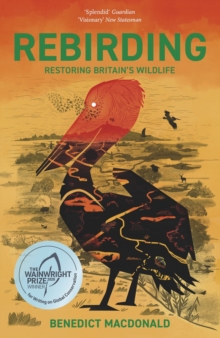
- title
- Rebirding : Restoring Britain's Wildlife
- author
- Benedict Macdonald
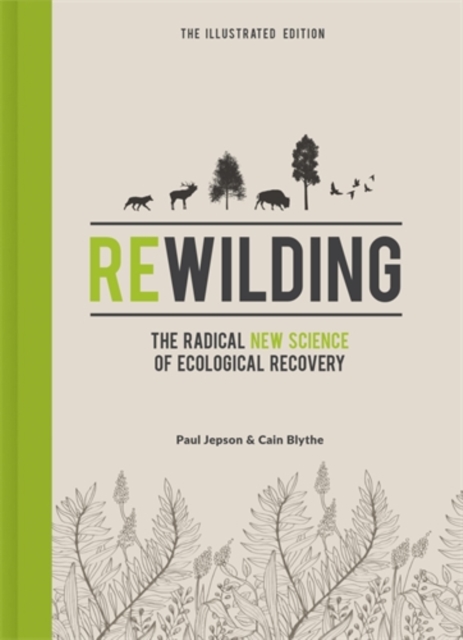
- title
- Rewilding - The Illustrated Edition : The Radical New Science of Ecological Recovery
- author
- Blythe, Cain, Jepson, Paul
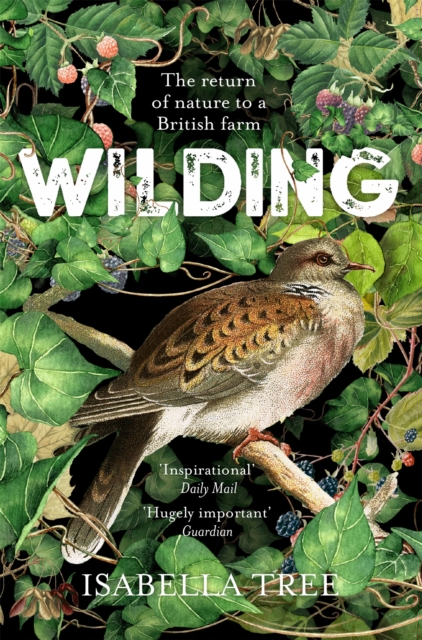
- title
- Wilding : The Return of Nature to a British Farm
- author
- Tree, Isabella

- title
- The Lost Rainforests of Britain
- author
- Shrubsole, Guy
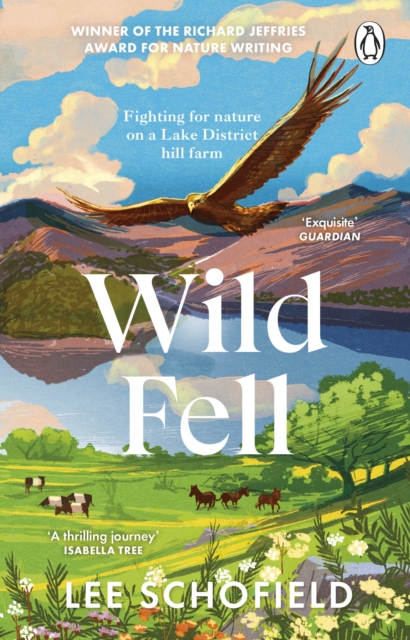
- title
- Wild Fell : Fighting for nature on a Lake District hill farm
- author
- Schofield, Lee
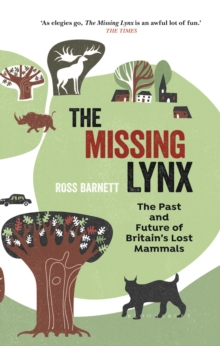
- title
- The Missing Lynx : The Past and Future of Britain's Lost Mammals
- author
- Ross Barnett